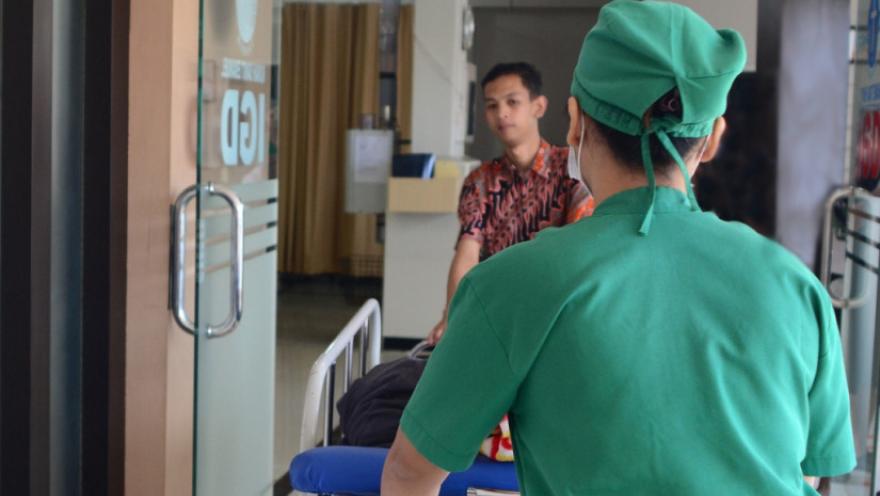Editor’s note: This article was republished with permission from The ALS Association St. Louis Regional Chapter.
Even though ALS is a disease that has its own health implications, people with ALS are not immune from other injuries or medical issues. Individuals with ALS can still get sick or hurt themselves in ways unrelated to the disease.
Or, people with ALS might have complications directly related to the disease that warrants a visit to the hospital.
When an individual with ALS goes to the hospital or the emergency room, they face additional obstacles with hospital staff who may not fully understand how ALS affects a person’s breathing, speech and movement. Extra measures should be taken to ensure people with ALS are cared for in the right way.
Here are some tips on what to look out for and how to prevent misunderstanding in the hospital or emergency room.
Potential Issues in a Hospital
When a person with ALS goes to the hospital or emergency room with breathing issues or respiratory problems, it is possible that hospital staff will attribute the problem to a lack of oxygen. However, most of the time this is not the case and giving a person with ALS oxygen can be dangerous.
ALS causes respiratory muscles to weaken, which is more likely to be the source of breathing issues. Trouble breathing does not mean a lack of oxygen, especially in the case of ALS.
Because weakened respiratory muscles is a symptom of ALS, it can be dangerous to lie a person with ALS on their back as it could cause CO2 retention. In extreme cases, weakened muscles might also be a red flag for hospital staff to examine the spinal cord, which is unnecessary and hazardous.
Slurred speech is not uncommon in people with ALS. If hospital staff are unaware of an ALS diagnosis, they may assume that the patient is under the influence of drugs or alcohol.
Some patients don’t have the ability to talk at all, and hospital staff may avoid speaking directly to the patient due to a misconception that lack of speech means a lack of understanding.
Hospital staff need to know if there are other health issues or diagnoses and what kind of medication the patient is on. The best way to ensure these issues are avoided is to be prepared with resources that can help hospital staff better understand the effects of ALS.
Resources to Use During Your Visit
Resources are available that address these miscommunications and missteps with hospital staff who are not used to working directly with people with ALS.
A medical information packet, containing a patient profile and general information for emergency room and hospital staff on ALS, can cut back time spent figuring out the needs of the patient and get to the point of the visit.
The patient profile includes basic patient information as well as medical details like their vital records, the medical equipment they use, and current medications they’re taking.
The packet also includes more information specifically on the respiratory, positioning, mobility and communication challenges that people with ALS face and should be taken into consideration by medical staff.
An eye gaze board aids communication between the patient and the hospital staff. It is important for hospital staff to understand that people with ALS deserve to be treated with respect, and part of showing that respect is to talk directly with the patient.
A key medical information card is a condensed version of the medical information packet and includes a smaller version of the eye gaze chart.
When possible, a caregiver or a trusted friend or family member should accompany people with ALS to the hospital or emergency room.
Working with your caregiver to have these documents in place, as well as updated medical history, can make the hospital trip more effective and get any additional medical complications addressed sooner.


Join the conversation. Please comment below.